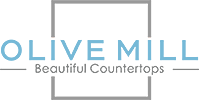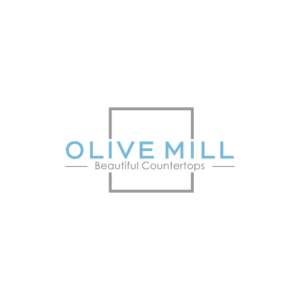Corian vs. Quartz Countertops: What’s the Difference?
Corian vs. Quartz Countertops: What’s the Difference? Choosing the right countertop material for your kitchen or bathroom can be a daunting task. With so many options available, it can be difficult to know where to start. Two of the most popular countertop materials on the market today are Corian and Quartz. While they may look similar at first glance, they have some important differences that are worth considering when making your decision.
What is Corian Solid Surface?
Corian is a brand of solid surface countertop material that was first introduced in 1967 by DuPont. It is made of a blend of acrylic polymer and natural minerals, giving it a unique look and feel. Corian is known for its versatility, as it can be molded into almost any shape or size. It is also available in a wide range of colors and patterns, making it a popular choice for homeowners who want a customized look.
Pros:
- Versatile
- Extremely Stain Resistant
- Repairable
Cons:
- Susceptible to Heat Damage
- Can Scratch a bit Easier than Quartz
What is Quartz?
Quartz is a man made material that is made of up to 93% quartz crystals and 7% resin and pigments. It is known for its durability and resistance to scratches and stains. Quartz countertops are available in a variety of colors and patterns, ranging from solid colors to marble-look designs. Unlike other natural stone materials like granite, quartz is non-porous, meaning that it does not need to be sealed and is easy to clean.
Pros:
- Durable
- Resistant to staining and scratching
- Easy to maintain
Cons:
- Non Repairable
- Higher Cost than Corian Solid Surface
Appearance:
One of the key differences between Corian and quartz is their appearance. Corian is available in a wide range of colors and patterns, and can even be customized to mimic the look of other materials like marble or granite. Quartz, on the other hand, is a natural stone and therefore has a more limited range of colors and patterns. However, quartz can be engineered to look like other materials, including marble and granite.
Durability:
Both Corian and quartz are known for their durability, but they have some differences in this regard. Corian is more susceptible to heat damage than quartz, so it is important to use trivets or hot pads when placing hot pots or pans on the surface. Corian is also more prone to scratching than quartz, although it can be repaired if it does get scratched. Quartz, on the other hand, is very hard and durable, and is resistant to scratches, stains, and heat.
Maintenance:
Both Corian and quartz are relatively easy to maintain. Corian can be cleaned with soap and water, and can be repaired if it gets scratched or damaged. Quartz is non-porous and does not need to be sealed, so it is very easy to clean and maintain. However, quartz can be damaged by harsh chemicals, so it is important to avoid using abrasive or acidic cleaners on the surface.
Cost:
One of the biggest differences between Corian and quartz is their cost. Corian is generally less expensive than quartz, although the exact cost will depend on the color and pattern you choose. Quartz can be relatively expensive, but it is known for its durability and long lifespan, which can make it a worthwhile investment.
In conclusion, when it comes to choosing between Corian and quartz countertops, there are several factors to consider. While both materials are durable and have their pros and cons, it ultimately comes down to personal preference and budget. Corian offers more versatility in terms of color and pattern options. Quartz, on the other hand, is incredibly durable and resistant to scratches, stains, and heat. It may be a more expensive option, but its long lifespan and low maintenance requirements can make it a worthwhile investment. Ultimately, the decision between Corian and quartz will depend on your budget and aesthetic appeal.
For more information about Quartz Countertops – Click Here, Corian Countertops – Click Here

If you have questions or would like an estimate, please text / call Valerie at 714-528-3789 or email at valerie.olivemill@gmail.com

